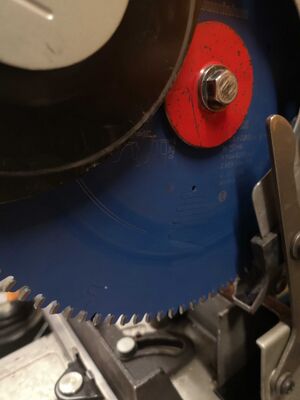Wall of shame
This page exhibit some mistakes and inappropriate behavior that happened in the makerspace. The goal is not to point the finger at anybody but to raise awareness. Making an mistake is ok as long as you realize it and learn from it. Safety rules and proper handling of the machines as described in this wiki are there to protect you and the tools so that everyone can enjoy the space.
Remember that if you have any question or need help on a project, you'll always find someone.
Now let's take a walk along the wall of shame with our member Kevin (purely randomly chosen name). Kevin might have different profils. He can be a new excited member that didn't take the time to read the wiki, he can be an relatively advanced user that believes he knows everything (but actually doesn't), he can also be an long-term makerspace member that believes rules do not apply to him anymore. Kevin also has little time to spend on his project, thus neglect the time he should invest in cleaning after himself.
Worst of the Woodshop
Another One Bits The Dust
Today, Kevin spent a lot of time sanding a lot of wood. It took him all day and a lot of sanding discs. But he now has a nice a smooth piece of wood. Unfortunately Kevin didn't spend his last 2 minutes cleaning and putting back the orbital sander in his box.
Don't be like Kevin and spend 2 minutes vacuuming the tool. It's also worth opening the filter box to empty it.
Also Kevin uses 115mm discs on this 125mm pad and press down like crazy. It just destroys the sides of the pads and discs won't stick.
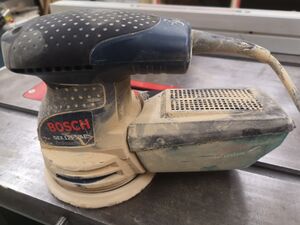
The Thin Red Line
Today, Kevin used the jointer/planer - the machine that creates the most wood chips - and quickly filled up the vacuum bag. And Kevin didn't check the level in the bag even though there's a transparent window with a thin red line and the text "MAX". As a result it filled up the space between the bag and the filter (about 25 cm) and it took two members about 1 hour to clean.
Also Kevin planed some wet would. Humidity can clog up the filter.
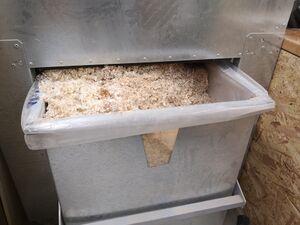
We Will Rock You
Today, Kevin had some lightweight limestone bricks to cut. Instead of using an appropriate cutting disc on an angle grinder, he thought it would be easier to use the table saw. Kevin should have asked first. As a result, Kevin quickly wore the blade and literately covered the table saw gears and the room with a fine abrasive white dust.
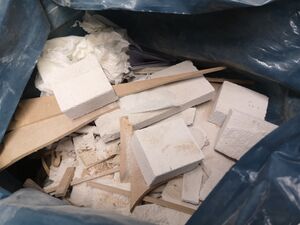
What Are You Waiting For?
Yes Kevin, here is your punishment for not emptying the trash, a song title by Nickelback!
I know taking the trash out when you just put a few pieces of wood is not fair but that's how it works. But leaving it like this for the next member is also not fair.
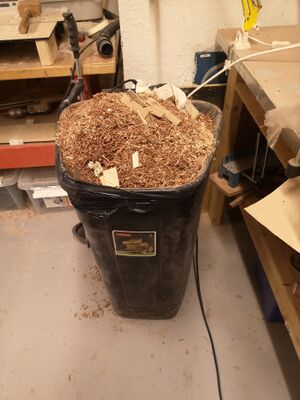
Dust in the wind
Today, Kevin heavily used the belt sander. If only he would have spend 1 minute of his time cleaning his mess.
Also if you connect the vacuum, you have much less to clean afterwards and you don't fill the room with dust!
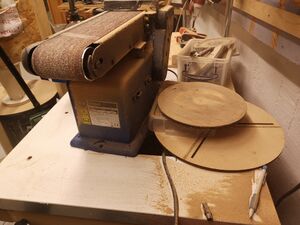
Every Breath You Take
Will slowly kill you. Today Kevin found an old telephone post. That would be awesome if only this stuff was not stuffed with dirty chemicals. The smell in the woodshop after one day should have give you a hint.
Instead you cut some pieces and spread deadly dust all around. Hopefully someone threw it away and Kevin acknowledge his honest mistake.
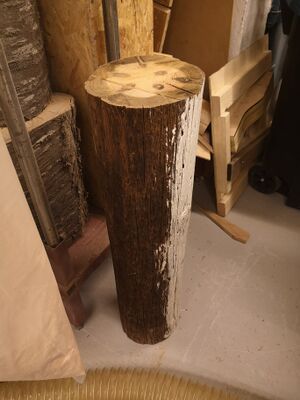
Metal workshop mishaps
Turning turns to trouble
This time, Kevin wanted to use a lathe to turn some wooden pieces, and then he thought "what better place to do so than in the Metal workshop?"
Wood dust does not mix well with the oiled ways and bearings of metal working machines (or you could say that it mixes too well) turning all the way oil from lubrication to a sticky glue-like mess that requires a thorough cleaning and re-oiling. The same goes the other way, the possible heat and sparks of metalworking does not mix well with flammable wood dust.
Keeping these two practices separated is mandatory, it is both safer and it makes our tools last way longer. Also make sure that the door between the wood workshop and the metal workshop is closed as soon as any work is going on.

Another spin on the saw
While working on his project, Kevin needed to cut some metal. He knew that depending on what metal he was to cut in the chop saw, he should use different blades, and he was to cut Aluminium. So far so good. He removed the steel blade from the saw and put it back on the wall, and took down the aluminium blade and mounted it. Still good.
What he didn't check was the large arrows that shows what direction the blade is supposed to spin, so he fitted it backwards and then tried to saw his metal piece. Not satisfied with the result, it did cut terribly slow, he pushed harder and harder to get through the aluminium piece, managed to get trough and left it at that.
Running the chop saw with the blade backwards, and/or pushing it down with excessive force, results in damage to the saw blades. These blades are very expensive (~1500SEK each), and last a really long time if you use the right blade, mount them the right way around and do not feed with excessive force.
